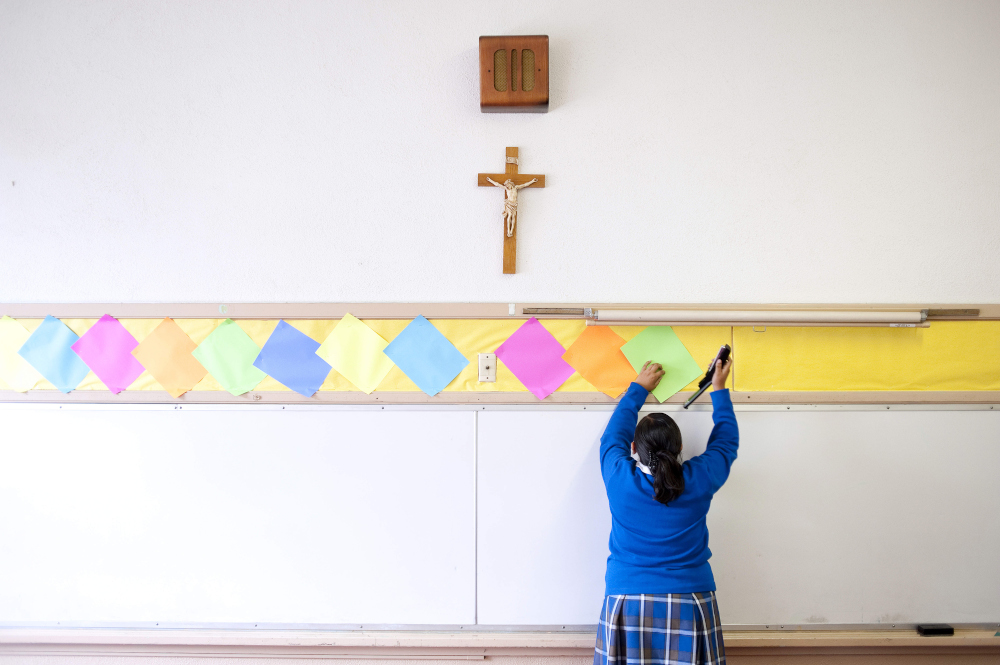
A student staples colored paper to the wall of a classroom after summer school July 18, 2012, at Our Lady of Lourdes in Los Angeles. (AP/Grant Hindsley)
The state of California has found that the Los Angeles public school district violated federal law in the manner it slashed funding for low-income and disadvantaged students who attend Catholic schools. The decision will force the district to recalculate and likely reinstate millions of dollars to parochial schools run by the Archdiocese of Los Angeles.
The archdiocese filed a complaint against the district in September 2019, after only 17 schools were declared eligible for Title I funds, provided to help low-income students meet challenging state academic standards, according to a June 25 report. The previous school year, more than 100 schools were cleared to get money under the program.
Los Angeles Unified School District "has failed to provide equitable services to (archdiocesan) schools," state officials said in the report, adding that the district "engaged in a pattern of arbitrary decisions" without consulting the archdiocese and in violation of federal and state law.
Advertisement
Paul Escala, senior director and superintendent of Catholic schools, said they serve about 13,000 students who qualify for services funded by the federal government through the school district.
"Even though they are not public school children, the school districts that they live in are obligated to provide them the resources necessary to supplement their educational programs," Escala said.
Funding goes toward services such as tutoring, counseling and instructional coaches in reading and math.
LAUSD officials said in a statement sent to Religion News Service that the district "strives to comply with all applicable rules and regulations regarding the provision of Title I equitable services."
The district, the statement read, "has appealed the matter to preserve its rights" and is engaging with the diocese to "resolve any issues."
In three years prior to 2019, Los Angeles Unified received an average of $291 million annually in Title I funds and distributed between 2.17% and 2.54% to private schools, according to the report. But in the 2019-2020 school year, the private schools' share decreased to less than 0.5%, even as the Title I funds the district received increased to more than $349 million.
The archdiocese said that in 2019-2020, its schools received $190,900, or 11% of a private school set-aside of $1.7 million, according to the report.
The California Department of Education gave the district 60 days to "engage in timely and meaningful consultation" with the archdiocese and to "recalculate the numbers of students from low-income families." The state report found that the district made sudden changes in how it determines which schools qualify for the funding, and excluded schools whose paperwork it found to be insufficient.
Escala said Catholic schools with disproportionately high numbers of impoverished children started feeling the impacts beginning in 2018 as "instructional coaches, teachers, individuals who were serving these children were told to pack their bags and their personal belongings and leave the school."
"They were no longer assigned to those schools," Escala said. "These are schools that are already serving the poor so they're already underresourced and small and then have to figure out how to pay to supplement for the loss of those individuals."
Escala said he expects the district to reimburse eligible students for services that they had not received over the past several years.



